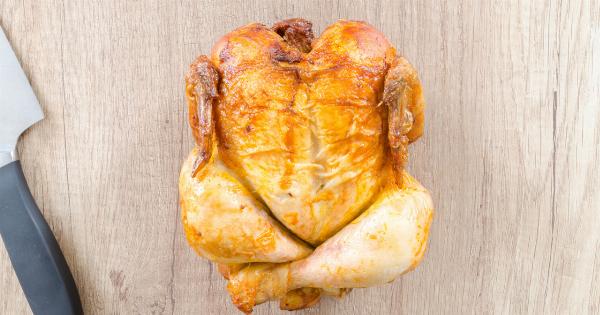One of the most life-changing experiences is being diagnosed with breast cancer. It can turn your world upside down and drastically change your life. Treatment for breast cancer can involve surgery, chemotherapy, radiation therapy, and hormone therapy.
Each person’s experience with cancer is unique and different, as is their journey. However, it is critical to take a holistic approach to cancer care, which includes proper nutrition.
The Importance of a Healthy Diet
Good nutrition plays a vital role in cancer treatment and recovery. Cancer treatments such as chemotherapy, radiation, and hormone therapy have significant impacts on the body.
They can weaken the immune system, cause loss of appetite, and increase the risk of infection. As a result, proper nutrition becomes even more crucial during breast cancer treatment.
Eating a balanced, nutritious diet can help boost the immune system, reduce fatigue, manage symptoms, and enhance your overall quality of life.
A healthy diet can also help regulate body weight, prevent malnutrition, and reduce the risk of chronic diseases such as heart disease and diabetes.
Specific Foods to Incorporate
When it comes to breast cancer treatment, certain foods and nutrients can help improve treatment outcomes. Below are some specific foods to incorporate into your diet:.
Plant-Based Foods
Eating more plant-based foods such as fruits, vegetables, and whole grains has been associated with a reduced risk of breast cancer.
Plant-based foods are rich in antioxidants, which help to reduce inflammation and protect the body from damage caused by free radicals.
Protein
Protein is critical during cancer treatment, as it helps to repair tissues, fight infections, and promote healing. Lean protein sources such as chicken, fish, beans, and tofu are excellent choices.
Some studies suggest that consuming a high-protein diet could enhance the efficacy of chemotherapy and reduce the side effects of treatment, such as hair loss and fatigue.
Water
It is vital to stay hydrated during cancer treatment. Drinking enough water can help flush toxins out of your body, hydrate your cells, and reduce constipation caused by certain cancer drugs.
Fruit and Vegetable Juices
Drinking fresh fruit and vegetable juices is an excellent way to get the nutrients your body needs. Juices can provide hydration and essential vitamins and minerals like vitamin C and folate.
Additionally, they are easy to digest, which can be helpful for patients experiencing nausea or mouth sores.
Foods to Avoid
While eating healthy is crucial during breast cancer treatment, there are also certain foods to avoid. Here are some foods to limit or avoid during cancer treatment:.
Processed Foods
Processed foods such as fast food, snacks, and sugary drinks should be limited or avoided altogether. These foods are high in calories, unhealthy fats, and often contain additives and preservatives that can be harmful to your health.
Alcohol
Alcohol should be avoided or consumed in moderation during cancer treatment. Drinking alcohol can weaken the immune system, interfere with drug metabolism, and increase the risk of dehydration.
Red Meat
Red meat, such as beef, pork, and lamb, should be limited during cancer treatment. Studies have shown an association between consumption of red meat and an increased risk of breast cancer recurrence.
Additionally, cooked red meat contains compounds called heterocyclic amines (HCAs), which can be carcinogenic.
Cooking Methods to Consider
It is essential to consider the cooking methods used when preparing meals during cancer treatment. Some cooking methods can reduce the nutrient content of foods or create harmful compounds that can be carcinogenic.
Here are some healthy cooking methods to consider:.
Steaming
Steaming is an excellent cooking method for preserving the nutrients in vegetables and lean proteins. Steaming is also a great option for people experiencing mouth sores, as the texture of steamed foods can be easier to swallow and digest.
Grilling
Grilling is a healthy cooking method that can add flavor to lean proteins and vegetables. When grilling, it is crucial to avoid overcooking meat, which could create harmful compounds like HCAs and polycyclic aromatic hydrocarbons (PAHs).
Baking
Baking is a great cooking method for lean proteins and vegetables. When baking, it is essential to avoid using excess oils or butter, which could add unwanted calories and unhealthy fats to the dish.
Conclusion
Nutrition plays a crucial role in breast cancer treatment and recovery. Consuming a healthy, balanced diet can help boost the immune system, manage symptoms, and enhance overall quality of life.
Incorporating specific foods such as fruits, vegetables, lean proteins, and water may also improve treatment outcomes. However, certain foods should be limited or avoided during cancer treatment. It is essential to consider cooking methods when preparing meals to ensure that nutrients are preserved, and harmful compounds are avoided.


























